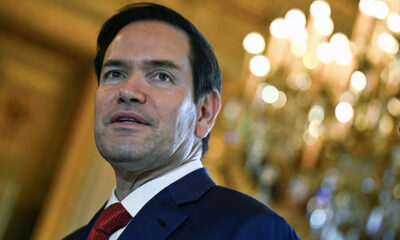Latest News
Baradar discusses water rights issue with Iran’s energy minister
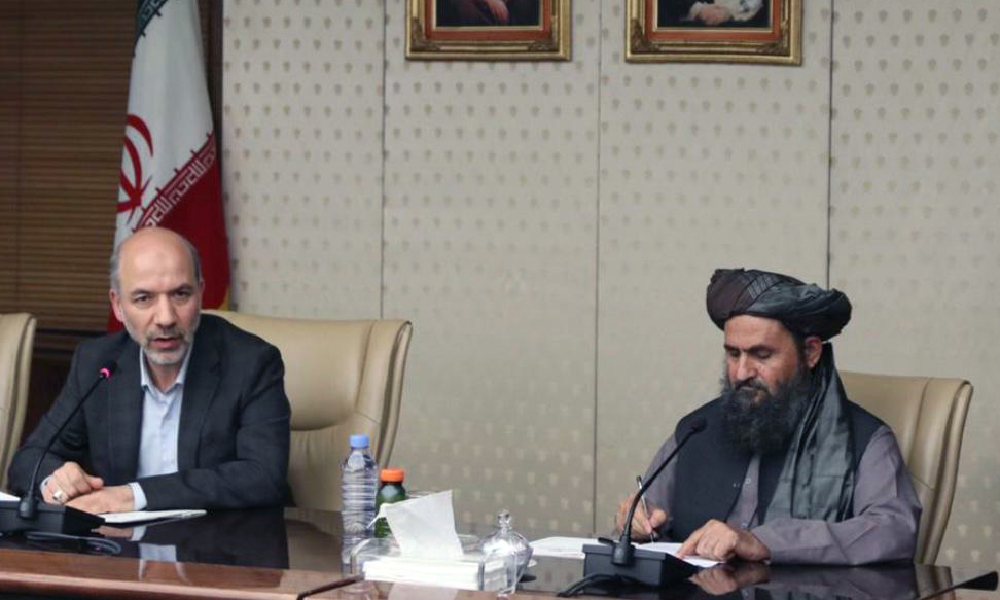
Mullah Abdul Ghani Baradar, Economic Deputy Prime Minister of the Islamic Emirate of Afghanistan (IEA), met with Iran’s Energy Minister Ali Akbar Mehrabian on Monday to discuss a number of issues including that relating to water management.
In addition to this, the two officials also discussed the need for Iran’s technical cooperation in the field of electricity production in Afghanistan, as well as investments, the use of advanced irrigation systems in agriculture, and drought relief programs for both countries. The strengthening of bilateral ties was also discussed.
Baradar said the recent droughts have had a bad effect on water resources in the region, especially in Afghanistan.He said surface and underground water levels have decreased significantly.
“In many areas, people inside the country have been forced to leave their places and some others have been forced to migrate again [due to water shortages],” Baradar said.
Baradar also said that some time ago, a technical delegation of the Islamic Republic of Iran visited the Helmand River area where they agreed that the river’s water level had dropped. According to Mullah Baradar, Afghanistan, which has enough resources to produce hydroelectric power, along with wind, solar and coal-driven power.
Iran’s Minister of Energy, Ali Akbar Mehrabian, said Iran was also struggling with drought-related problems. He did however assure Baradar of Iran’s support in providing technical cooperation in various sectors including electricity production.
This discussion followed Baradar’s earlier meeting with Iran’s Minister of Interior, Ahmad Wahidi.
The meeting commenced with the Deputy Prime Minister expressing gratitude to the Iranian government for its unwavering support and assistance to the Afghan people during challenging times.
He noted that Iran has consistently provided aid to Afghans in distress and continues to host millions of Afghan refugees.
He highlighted the importance of further cooperation between the two nations in the areas of economics and security, emphasizing that a stable and prosperous Afghanistan benefits both the region and the world.
He also made a request for handing over Afghan prisoners accused of various crimes in Iran. He reiterated the Islamic Emirate’s commitment to enhancing Afghanistan’s economic situation, enabling Afghan citizens to lead dignified lives and serve their compatriots within their homeland.
Baradar underlined the priority of combating narcotics, noting significant progress in reducing drug cultivation and trafficking in Afghanistan.
Iran’s Minister of Interior Ahmad Wahidi welcomed the Afghan delegation, highlighting the opportunity for Iran and Afghanistan to strengthen economic and commercial ties.
He emphasized Iran’s support for the transit of Afghan products through its territory to boost Afghanistan’s exports and asked the Afghan side to share their products for the purpose of marketing in Iran.
Wahidi viewed the settlement of Afghan refugees in Iran as a favorable business opportunity and suggested establishing a joint committee between both countries to address refugee issues.
He further stressed Iran’s priorities, which include border security, the establishment of common markets, anti-drug efforts, trade and transit development, and improving the quality of life in border areas.
The meeting encompassed discussions on several key initiatives, including the construction of a railway from Chabahar to Nimruz, Helmand, and Kandahar, the educational opportunities for Afghan students, Iran-China connectivity through Afghanistan, and linking Uzbekistan to the Gulf of Oman via Afghanistan and then Iran.
The Iranian delegation emphasized the importance of establishing a connection with China through Afghanistan, deeming it beneficial for both nations.
Baradar also acknowledged the significance of this initiative and pledged to expedite its implementation.
Latest News
AWCC activates new site in Nangarhar’s Kuz Kunar district
Residents of Kuz Kunar expressed happiness over gaining access to telecom and internet services and called for the further expansion of such services across Nangarhar.
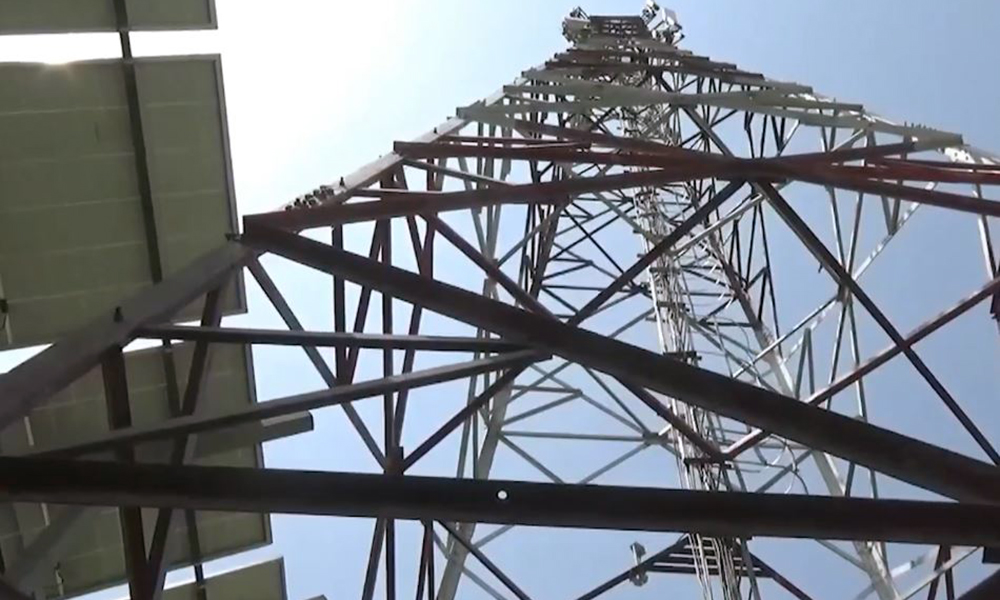
Officials from Afghan Wireless Communications Company (AWCC) say they have activated a new site in the Kuz Kunar district of Nangarhar province.
According to AWCC representatives, the launch of this site has provided thousands of families with access to telecommunication and internet services.
They added that Afghan Wireless will also soon launch 4G internet services in the area.
Meanwhile, officials from Nangarhar’s Department of Telecommunications and Information Technology stated that efforts are underway to expand telecom services to other remote areas of this province.
Rahimullah Shinwari, head of the ATRA (Afghanistan Telecom Regulatory Authority) office in Nangarhar, said that with the activation of the new AWCC site, 25,000 families will now have access to telecom and internet services.
Residents of Kuz Kunar expressed happiness over gaining access to telecom and internet services and called for the further expansion of such services across Nangarhar.
In recent years, AWCC has extended its telecom and internet services to many remote areas across the country.
Latest News
Moscow’s move a ‘significant step toward recognizing Afghanistan’s political realities’, says Haqqani
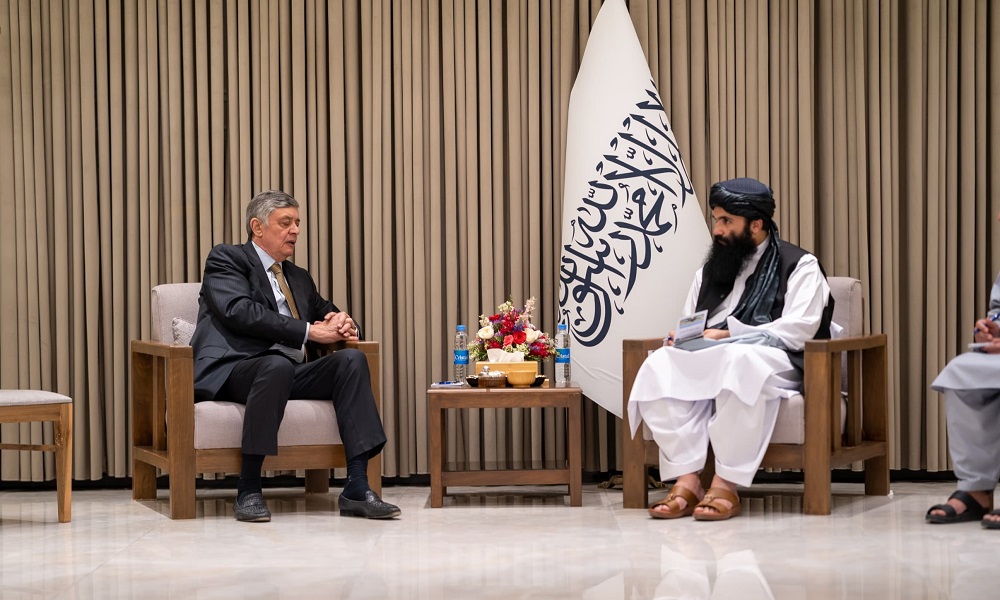
Acting Minister of Interior Sirajuddin Haqqani on Wednesday met with Zamir Kabulov, Russia’s special envoy for Afghanistan, and Dmitry Zhirnov, Russia’s ambassador to Kabul.
Haqqani expressed appreciation for Moscow’s recent decision to remove the Islamic Emirate from its list of terrorist organizations. He described the move as “a significant step toward recognizing the political realities of Afghanistan.”
In a statement, the interior ministry said that both sides emphasized the importance of upgrading diplomatic relations to the level of embassies and reaffirmed their commitment to mutual cooperation in the fields of security and trade.
During the meeting, the two parties also discussed regional and bilateral cooperation in the areas of security, economy, and commerce, and stressed the need to strengthen ties between the two countries.
Latest News
Special meeting will be held to launch Afghanistan–Russia joint commission, says Kabulov
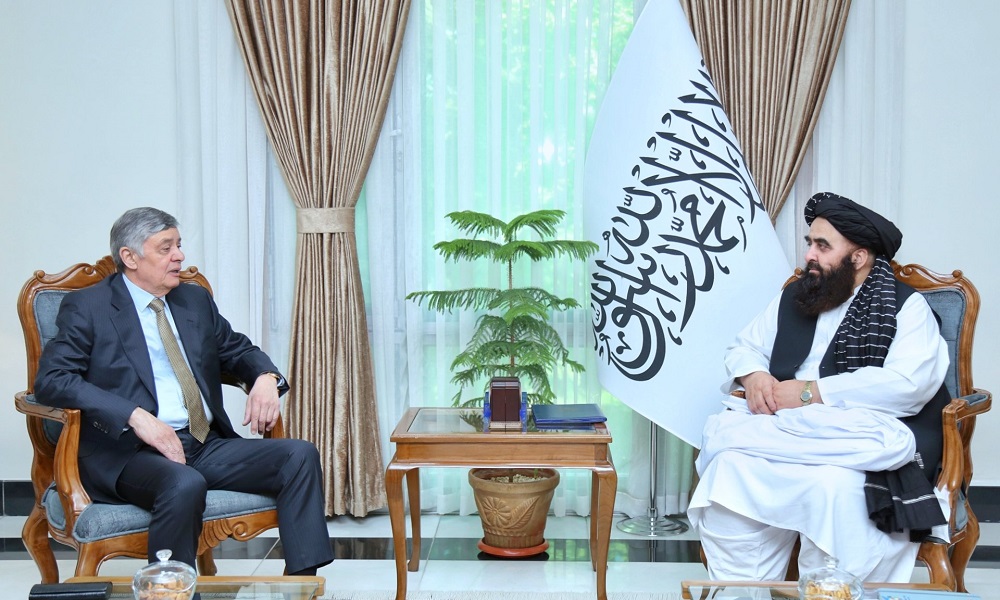
Zamir Kabulov, Russia’s special envoy for Afghanistan, on Wednesday met with Afghanistan’s Acting Minister of Foreign Affairs Amir Khan Muttaqi in Kabul and said a special meeting will be held on the sidelines of the Kazan Forum to officially launch the permanent joint commission between Russia and Afghanistan.
According to a statement issued by the Afghan foreign ministry, Kabulov said that expanding relations with Afghanistan is important to Russia, and for that purpose, Moscow has taken steps to remove obstacles in the path of developing bilateral ties.
This comes after Moscow last week removed the Islamic Emirate from their list of militant organizations.
During the meeting, Muttaqi expressed appreciation for Russia’s recent move to remove the IEA from its list of banned organizations and stated that the Islamic Emirate will soon appoint a diplomat at the ambassadorial level to serve in Moscow.
The two sides also discussed enhancing bilateral relations between Afghanistan and Russia, expanding economic and trade cooperation, and addressing certain regional issues.
The 16th International Economic Forum “Russia – Islamic World: Kazan Forum” will be held from May 13 to 18 in the city of Kazan, Russia. Afghan products and goods will be showcased at the event.
-

 Sport5 days ago
Sport5 days agoAfghanistan qualify for U19 Cricket World Cup 2026
-

 World4 days ago
World4 days agoThousands of protesters rally against Trump across US
-

 World5 days ago
World5 days agoIran, US end nuclear talks in Rome, agree to meet next week
-

 Latest News4 days ago
Latest News4 days agoPolio vaccination campaign launched in Afghanistan
-

 International Sports4 days ago
International Sports4 days agoIPL 2025: 14-year-old Vaibhav Suryavanshi becomes youngest IPL player
-

 International Sports2 days ago
International Sports2 days agoIPL 2025: Robo-Dog ‘Champak’ explained
-

 Latest News3 days ago
Latest News3 days agoChina invites various Afghan delegations to attend Shanghai forums
-

 Latest News3 days ago
Latest News3 days agoAriana Afghan Airlines increases flights to China






